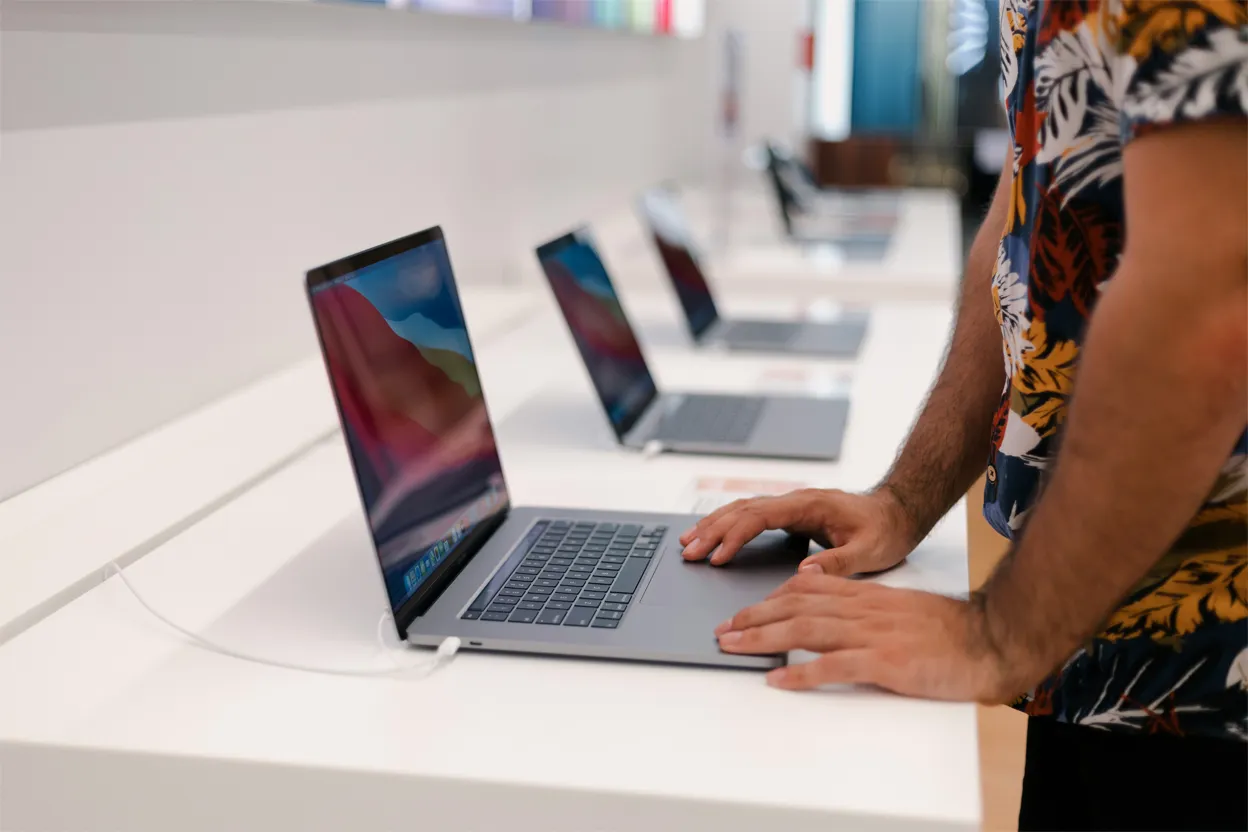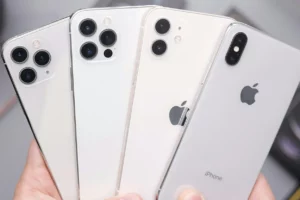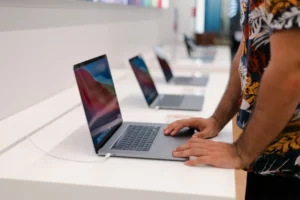Purchasing a new computer is not something you should take lightly.
Do yourself a favour and conduct your own preliminary research, or consult with IT firm like ours that can guide you in the right direction and explain technical IT jargon in layman’s terms so you can make a more informed decision.
It can potentially keep you from making costly errors that could come back to haunt you later.
Here are a few things to think about before spending your money on a new computer.
The amount of RAM memory you get
One of the most common mistakes people make when shopping for a new computer is they overlook RAM.
Random access memory, or commonly referred to as RAM or “memory”, is the short-term memory of a computer that stores the data that the processor is currently using.
Because RAM memory can be accessed much faster than data on a hard disc, SSD, or other long-term storage device, RAM capacity is critical for system performance.
Some of the many issues that arise when your system’s memory is low includes:
- Your web browser will start to freeze when you have too many tabs open
- You will run into problems while watching trying to watch videos
- Some software that you run may not function properly
- You will experience slowness of movement and mouse lag
- You won’t be able to have multiple applications open
- You will experience constant thawing
Memory is the computers “thought process.”
If there isn’t enough, it won’t be able to take on another task until it has finished processing the current tasks.
This can lead to frustration and reduce your productivity.
Often times when people look to buy a new computer, they can at times get enticed by low-cost deals and sales.
However, most of these low-priced laptops only come with 4GB of RAM, and that’s not a lot of RAM you’re going to be using multiple applications or you plan to browse the web with a few tabs open.
The more RAM you have, the more responsive your system will be. Look for laptops or computers with at least 8GB of RAM.
Alternatively, if you do any processing-intensive activities such as graphics/video, then you should consider upgrading to at least 16GB or 32GB RAM. Upgrading to 64GB of RAM in most cases won’t be worth it as you will unlikely ever need that much.
Check for user reviews
Purchasing a new computer represents an investment. As a result, it’s understandable to want you want your investment to last for as long as possible.
You don’t want to spend $700 today on a new computer only to have it break down just two years after.
Take your time in researching user reviews on the specific models you’re interested in or discover what other users are saying on Quora or Reddit communities.
You’ll soon start to notice patterns emerge amongst reviews and topic threads. Avoid models that have a history of breakdowns occurring sooner than expected.
A system with a better track record of performance may require you to pay a little more.
However, it will save you money in the long run because you will have more years of usable life before that device needs to be replaced.
Will it be used for personal or business purposes
If you own a small business or work as a freelancer, you may be able to save money by purchasing a consumer PC.
However, this may end up costing you more in the long run.
Consumer PCs are not intended for everyday “9-to-5” use.
They also frequently lack certain types of firmware security found in commercial-use models.
The price difference between good consumer computers and business versions has also narrowed.
If you avoid the low-cost systems, you’ll discover that a business-grade device isn’t all that much more expensive.
What’s the best processor for your needs
Reading through the processor specifications on a computer can be perplexing.
How do you know which Intel Core i7 or i3 processor is right for you?
What is the difference in performance between AMD and Intel processors?
If you don’t want to do the research yourself, you could consult with one our our IT professionals and we would gladly point you in the right direction.
We’ll explain the distinctions in layman’s terms, as well as which processor is best suited to your intended use.
The Case Type for Laptops
A laptop computer must be durable if you are looking for one.
Laptops have some distinguishing features that set them apart from desktop computers.
For example, the screen is frequently folded down once or more per day.
Furthermore, the keyboard is integrated into the case and cannot be easily replaced by the user.
If you buy a laptop with a cheap plastic case, it will almost certainly break during normal use.
Keys on the keyboard could also easily pop off, necessitating a trip to a computer repair shop.
You should think about the case’s materials. A $20-$30 upcharge for a better casing is definitely worthwhile. It can save you from unnecessary headaches.
Storage capacity
Storage capacity can be a source of frustration after the fact.
If you buy a computer without considering hard drive space, you may come to regret it.
You might not be able to transfer all of your “stuff” from the old system.
However, storage capacity is another area where you can save money.
If you store the majority of your files in the cloud, you may only require a small amount of hard drive space.
The lower the price, the less space required.
Go for SSD
You should buy a computer with a solid-state drive (SSD) rather than a traditional hard disc drive (HDD).
SSDs are faster and less prone to read/write errors. Because they have no moving parts, they are also quieter.
Solid-state drives have recently come down in price significantly.
There are many low-cost options, and some PCs include both a hard drive and an SSD.
Should your buy or lease?
Computers and laptops are often a capital expense and sometimes you may not have the funds and budget ready for the exact machine you need to execute on your daily tasks. This is where leasing a laptop or computer may be more beneficial than buying, especially if you own a business which can be a full tax deduction*.
Cashflow, your desired specs, and the amount of devices you need is generally the main push behind why so many businesses are now choosing leasing over outright purchasing.
The beauty of leasing your computer or laptop is that once your lease has ended, you can simply choose to upgrade to the latest and newest model and stay ahead of the curb with the most up-to-date tech.
Come to Us Before Purchasing a New Computer
Don’t buy a new computer without first seeking professional advice. Contact us today for a free consultation to avoid a bad new computer experience.
The Technology Press has granted permission for this article to be used.
* We don’t offer accounting advice so please speak with your accounting professional for any tax deduction advice.




